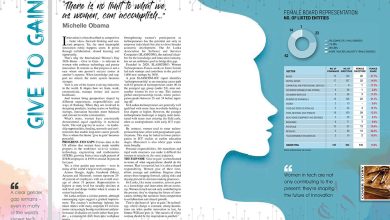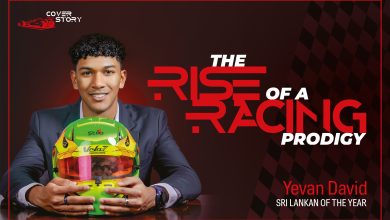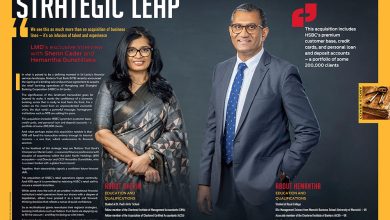
PRESIDENTIAL WISH LIST
ACCOUNTABILITY AND TRANSPARENCY
SHIFTING TOWARDS A MORE TRANSPARENT SOCIETY
Wijith DeChickera emphasises the need to strengthen accountability structures

Political parties on the eve of national elections are notorious for building castles in the air. They often promise the sun, moon and stars but are disconcertingly evasive when it comes to how they would foot the bills for white elephants… once in power.
Discerning enough to realise that they’ve been gulled again, the people are left in the lurch, asking plaintively in moments of despair – tempered by insights that come too late – ‘who pays the ferryman?’
This tendency of young governments in the first flush of electoral victories to splurge on generally inadvisable or ill-fated plans, projects and programmes – that appear oriented towards growth, development and progress but constitute a severe drain on state coffers – is sometimes compounded by the underlying penchant of fledgling regimes to bulldoze legislatures into grand undertakings that bleed the Treasury dry.
And it is this cavalier approach, in addition to paternalism in governance tempered by a patron-client ethos, that undermines the national interest; it has brought many profligate administrations into later disrepute, albeit too late to salvage the state of the nation.
That is why public scrutiny over governmental spending is vital for a stronger, and more vibrant and fiscally healthier, political economy.
It is this ethic that constitutional expert and law academic Dr. Asanga Welikala had in mind when he essayed, as far back as 2002, that “control over public finances has been the cardinal basis on which legislatures have held executives to account.”
In this respect, the most significant power conferred on parliament under the present constitution is its complete control over public finance (vide Article 148).
However, Centre for Policy Alternatives (CPA) research has exposed serious concerns with regard to the institutional capacity of parliament and its committees in exercising these powers meaningfully.
These institutions include the Committee on Public Accounts (COPA), Committee on Public Enterprises (COPE) and Committee on Public Finance (COPF).
And these concerns are compounded when viewed in the light of the existing constitutional dispensation where an over mighty executive has other ways of subverting the writ and oversight right of parliament.
At present, parliament’s scrutinising role is not as effective as it could be and consequently, public interest may be suffering.
For one, public accounts are almost always published far too late to be useful.
And for another, performance reports are not prepared by ministries for their departments and lapses in control aren’t always taken seriously.
Last but not least, there is a pressing ongoing need to define the terms of accountability between the three levels of national government – i.e. central, provincial and local.
It’s clear that it remains imperative to bolster parliamentary control over public finances. It is a paramount area of accountability in governance that requires institutional capacity building.
At present, parliamentary oversight committees face difficulties or challenges in organising and conducting regular meetings. Members are not sufficiently motivated to attend sessions and make their points of view heard.
Perhaps most importantly, as well as contrary to best practices in other parliamentary democracies, hearings of the legislature’s oversight committees are held in camera and not open to the media or general public.
Arguably worst of all is the fact that governments of the day are not required to respond to or implement course corrections arising from any oversight committees’ reports in a stipulated period of time. “This leaves the accountability loop open,” laments Welikala.
The committees are also constrained by a lack of research capacity in terms of analytical ability as well as corporate memory, to analyse the performance and results of public institutions. Welikala bemoans: “Democracy suffers in such an environment.”
Therefore, it is imperative that the paramountcy of parliamentary oversight committees be emphasised, their scrutiny of public finance made more transparent and attendant capacity to provide sustainable benefits to the public be enhanced.
Public scrutiny over governmental spending is vital for a stronger, and more vibrant and fiscally healthier, political economy
PRESIDENTIAL WISH LIST
NATIONAL RECONCILIATION
SOCIAL COHESION WILL LEAD TO NATIONAL RECONCILIATION
Dr. Jehan Perera calls for social cohesion while outlining the challenges and path forward

National reconciliation is a vital process in post-conflict societies where the wounds of war and deep-seated divisions linger long after the cessation of hostilities. In Sri Lanka, national reconciliation is not merely about ending the ‘ethnic conflict’ but addressing the underlying issues that led to it as well.
It involves building a society where all communities feel respected, safe and represented. Reconciliation is crucial for social cohesion, which is the foundation of a stable and prosperous country.
Without it, the risk of recurring violence, instability and backsliding remains high.
One of the key areas identified for advancing national reconciliation is power sharing.
Sri Lanka needs to embrace social cohesion by building trust between the more than 20 ethnic and religious communities who need to be seen as belonging to the country.
The 13th Amendment provides a framework for devolution. But its full implementation has been hindered by political resistance to devolving powers to the ethnic and religious minorities who are not seen as belonging to the country equally.
Creating a senate or an upper chamber as part of the central government structure can promote power sharing at the national level, fostering unity while respecting regional diversity.
Transitional justice is another critical aspect of reconciliation.
Sri Lanka’s efforts in this area have been met with mixed reactions. The government has taken steps to address issues such as missing persons, reparations and accountability for human rights violations, but progress has been slow and the outcomes have often fallen short of international standards.
The normalisation of military presence in the north and east, and ensuring equitable military and police practices, are vital steps that need more attention and urgency. Addressing these issues is not only a matter of justice but also a prerequisite for building trust among communities that have been deeply scarred by the conflict.
Equal protection under the law is another area that needs strengthening.
This includes enforcing language equality, ending caste based discrimination, and ensuring that religious and cultural diversity is respected throughout the country.
Economic equity must also be promoted by providing equal employment opportunities and access to state facilities – especially in the north and east.
The marginalisation of ethnic and religious minorities, as well as caste based discrimination, continue to pose serious challenges to social cohesion in Sri Lanka.
In particular, the Malaiyaha Tamil community – who were deprived of their citizenship at the time of independence and remain marginalised – must also be included in the reconciliation process. Providing land, housing and reparations to this community is crucial for correcting historical injustices, and integrating them into the broader national fabric.
Finally, good governance is indispensable for reconciliation. Strengthening the judiciary, ensuring the rule of law and combatting corruption are all necessary, in order to build trust between the state and the people.
The creation of independent institutions and protection of public officers’ tenure are also critical for maintaining transparency and accountability in governance.
Good governance is the foundation upon which national reconciliation must be built. Strengthening the judiciary, ensuring accountability and combatting corruption are crucial for restoring public trust in the government and its institutions.
And the creation of independent institutions, the reinstitution of permanent secretaries to ministries, and the fulfilment of international human rights obligations are steps in the right direction.
The proposed policies and actions provide a comprehensive framework for moving forward, but their implementation requires political will, sincerity, and a commitment to justice and equality to achieve lasting results that will surely transform the country.
Sri Lanka needs to embrace social cohesion by building trust between the more than 20 ethnic and religious communities who need to be seen as belonging to the country
PRESIDENTIAL WISH LIST
ECONOMIC STABILITY
THE NEED OF THE HOUR IS A ROBUST ECONOMIC FOUNDATION
Maninda Wickramasinghe urges the next government to pursue the reform agenda
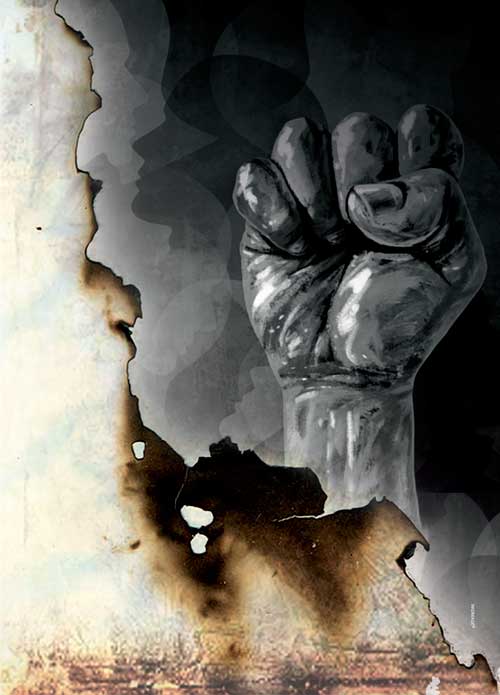
Q: How do you assess the stability of Sri Lanka’s economic environment?
A: Sri Lanka has shown significant resilience since the crisis of 2022. Despite facing severe price hikes and the removal of subsidies, the economy has entered a recovery phase.
The adjustment to higher prices and increased interest rates has led to realignment in spending patterns. Despite the adjustments, the money supply is circulating effectively and recent reductions in interest rates indicate that inflation is under control.
Externally, the Central Bank of Sri Lanka’s efforts to accumulate foreign reserves by purchasing dollars are commendable and crucial for economic stability. Importantly, the banking system is stable.
Additionally, the increase in tax revenue – particularly through enhanced direct taxation – has been a positive step. However, there’s room for improvement especially in tax administration and revenue collection.
The long-term challenge is to sustain these improvements and avoid backsliding into past inefficiencies.
Overall, Sri Lanka’s economy is positioned for potential growth, provided that it maintains stability and embraces new opportunities.
Q: What is your outlook on the IMF programme and its implementation going forward?
A: Sri Lanka’s 17th engagement with the International Monetary Fund highlights a history of recurring economic management issues. Historically, Sri Lanka has completed only four IMF programmes, which underscores a pattern of economic mismanagement.
Given this context, it is crucial that the current programme be the turning point for sustainable economic management. It is easier to backtrack rather than stay the course, which is probably difficult politically.
Learning from past crises, Sri Lanka needs to avoid broad-based subsidies like those for fuel, which have proven unsustainable. Instead, a well-designed social security system tailored to modern economic realities is essential.
The reform of state-owned enterprises (SOEs) is also critical as they have historically been a drain on resources due to subsidies and inefficiencies.
Effective reform will require capital infusion, technological upgrades and a shift towards profitability. Any future government should continue this reform agenda, which is vital for long-term economic stability.
Q: Do you expect economic stability and external financial assistance to impact Sri Lanka’s growth in the short to medium term?
A: Sri Lanka faces challenges with low savings rates and inadequate capital formation. The country needs to rethink its approach to capital formation, focussing on incentivising savings through diverse financial products.
We should focus on foreign exchange (FX) products to tap onshore capital.
Furthermore, foreign direct investment (FDI) is crucial for growth – particularly in key sectors such as the ports, power and energy. To attract investment, Sri Lanka must ensure a stable economic environment with predictable policies.
Policy consistency is essential for maintaining investor confidence and avoiding capital flight – investors seek stability and the ability to forecast returns.
Q: So what additional measures should be taken to foster economic growth?
A: Promoting SMEs is essential. These businesses often face boom and bust cycles, and require support in the form of technology, market access and financing. Long-term low-cost capital is critical for their sustainability.
Large corporations should also adapt by focussing on competitive industries and integrating into global supply chains. Sunset industries should be phased out in favour of sectors that can add value such as tea production, which currently lacks domestic value addition.
Looking forward, Sri Lanka should explore growth opportunities in sectors such as IT, tourism and port related services.
Leveraging marine resources and biodiversity can drive growth, particularly if they are supported by research and development. Additionally, tourism should target niche markets and emphasise value added experiences rather than mass market approaches.
Overall, Sri Lanka needs to foster real sector growth by investing in strategic areas and building a robust economic foundation to ensure sustainable progress.
– Compiled by Yamini Sequeira
The interviewee is the Country Head, Managing Director and CEO of Fitch Ratings Lanka. The views expressed are the interviewee’s personal opinions and do not reflect those of the organisation he represents.
Policy consistency is essential for maintaining investor confidence and avoiding capital flight – investors seek stability and the ability to forecast returns
PRESIDENTIAL WISH LIST
STABILITY AND PROSPERITY
THE COST OF LIVING CRISIS NEEDS URGENT ATTENTION
Tamara Rebeira pins her hopes on the president’s ability to ensure lasting stability and prosperity
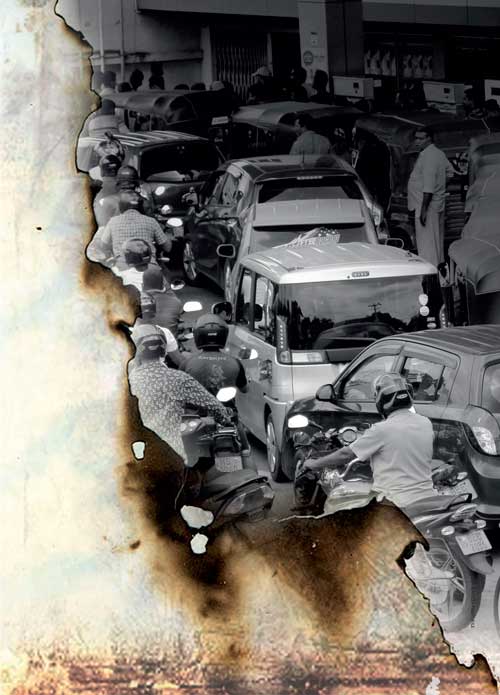
The cost of living is a pressing concern that impacts every facet of life from the price of daily necessities to long-term financial security. As the nation grapples with multiple economic challenges, the president’s role in addressing these issues becomes paramount.
Sri Lanka has battled a steep rise in the cost of living – albeit somewhat stabilised today – driven by several factors including political instability, inflation, currency depreciation, spiralling fuel prices and disruptions to global supply chains.
These factors led to higher prices for essential goods and services, making it difficult for average households to manage their daily expenses. The economic strain is particularly acute for low and middle income families who are disproportionately affected by rising household expenditure.
Historically, presidential candidates have unveiled manifestos promising major reforms, yet there’s often been a yawning gap between these pledges and their achievement.
More often than not, these promises have been disconnected from real world challenges.
According to an Institute for Health Policy (IHP) Sri Lanka Opinion Tracker Survey (SLOTS) conducted between April and July, Sri Lankans are primarily concerned about the economy and cost of living.
Similarly, the PepperCube Cost of Living Index (CLI) has witnessed wild fluctuations over the past four years and is only now approaching pre-economic crisis levels.
After skyrocketing to a staggering 70 percent in September 2022, inflation reduced to 1.7 percent in June but has fluctuated since then. Throughout last year and early 2024, many Sri Lankans continued to face high prices for essential goods such as food, fuel and medicine – this, despite the tapering trend of the official rate of inflation.
The combination of increased taxes and persistently high costs means that while the economy has stabilised to some degree, many feel their standard of living has been eroded. It goes without saying that higher taxes place a heavy burden on both individuals and businesses.
Amid these pressing challenges, it’s imperative for the president to move beyond mere rhetoric and prioritise the stabilisation of the economy with tangible action. Controlling inflation should be at the forefront of the president’s agenda.
This requires more than mere sound bites; it demands the implementation of prudent fiscal policies, responsible monetary management and a drastic reduction in government expenditure.
However, the real test lies in whether these policies can be executed effectively in a country marred by political instability and bureaucratic inefficiency.
A stable currency is not simply desirable; it’s essential. The Sri Lankan Rupee’s depreciation exacerbated the cost of imports, driving up prices across the board and hitting ordinary citizens the hardest. Boosting exports, attracting foreign investments and reviving tourism – while they’re crucial – are quick fixes that may not be a means to an end.
Sri Lanka’s cost of living is heavily influenced by the price and availability of food, yet local agricultural production requires development. The promise of promoting agriculture through subsidies, technology and infrastructure improvements must translate into concrete actions.
Without serious investment and reform, the country will continue to depend on imports, keeping food prices high and food security low. Meanwhile, the implementation of price controls and subsidies to ease the burden on lower income families must be carefully managed. In the past, such measures often led to market distortions or ‘mafias,’ shortages and corruption.
Public utilities – especially water and electricity – haven’t been poorly managed, leading to inefficiencies and seemingly arbitrary price hikes.
Attracting foreign direct investment, supporting SMEs and fostering innovation are no mean tasks, in an economy milieu that has been plagued with policy inconsistencies and political interference.
To tackle the cost of living effectively, the president must take decisive and pragmatic action – proposing ambitious plans alone will not suffice; and they must be backed by clear implementable strategies that address the root causes of economic instability.
A president who fails to address these challenges with the urgency and depth required risks perpetuating inequality and hindering the nation’s path to sustainable prosperity.
To tackle the cost of living effectively, the president must take decisive and pragmatic action – proposing ambitious plans alone will not suffice
PRESIDENTIAL WISH LIST
FIGHTING CORRUPTION
INDEPENDENT INSTITUTIONS MUST BE INDEPENDENT
Pulasthi Hewamanna emphasises that tackling corruption calls for a multifaceted approach

Q: How would you assess the prevailing level of corruption and what are the most pressing challenges that need to be addressed immediately?
A: I would look to Transparency International’s Corruption Perceptions Index (CPI) – the CPI ranks 180 countries based on their own citizens’ perceptions of the level of corruption in their country, marked between 0 and 100. A higher score indicates less corruption.
Sri Lanka scores 34/100, which is less than it scored previously, placing it at 115th in the index in 2023. By then, with the shortage of essentials, the people’s protests were a clear indication of the recognition of the link between our country’s crisis and state of corruption.
This is reflected in the supreme court’s decision on the economic crisis as well.
If we are to prevent abuse of entrusted power for private gain, ensuring stronger integrity structures are required instead of short-term fixes. Independent institutions must be made truly independent, free from political influence.
Q: If you could propose crucial anti-corruption legislation that the president should prioritise, what would it include?
A: New laws on the proceeds of crimes, serious financial and organised crime, corporate transparency, and procurement that complies with international best standards and Financial Action Task Force recommendations would be useful.
But we already have several laws that can be used to fight corruption.
What is crucial is a system that’s so robust that whoever assumes power, be it in a department or the executive itself, is incapable of abuse of power.
A system to implement laws in an effective and unbiased manner – perhaps along the lines of a Directorate of Enforcement and an independent office of a public prosecutor – should be set up.
Q: How can the president engage civil society and the private sector in anti-corruption efforts?
A: A president with a new mandate, especially where corruption has highly impacted society, should provide the political will and space to ensure society is involved in anti-corruption.
A ‘whole of society’ approach will allow citizens to sound the fire alarm to highlight corruption, supplemented by civil society and the private sector, to play the watchdog role.
Whistle blower protections are essential in this endeavour. The president should coerce all these sectors to buy into and abide by the principles of anti-corruption, and enhance the ability of citizens to understand and resist corruption. This would be a political win.
Q: How should the president ensure greater transparency and accountability in government operations?
A: Real transparency is essential as a mechanism of better governance to ensure that the true spirit of the law is upheld. Constitutional provisions allowing ministers to control ministry secretaries must be carefully redrawn, and supplemented with enforceable codes of conduct and ethics for ministers and public servants alike.
Those in positions of power must be subject to the findings of the auditor general, Committee on Public Enterprise (COPE) and Committee on Public Accounts (COPA). There must be binding commitments to whistleblowing, conflict of interest disclosures and adequate reporting of non-compliance with laws to name a few.
The Civil Society Governance Diagnostic Report was an initiative of several civil society groups led by TISL. It highlights governance and corruption reform needs of the day, including measures to enhance transparency and accountability such as maintaining a fiscal transparency platform, effective implementation of laws and publication of follow up actions when required – for example, by opinions of the auditor general.
Q: And what role should the public sector play in the fight against corruption – and what specific reforms would you recommend to improve its integrity?
A: The public sector is one of four sectoral pillars that TISL’s programme framework was developed on. It’s inextricably intertwined with the perception of corruption in Sri Lanka.
Corruption has no seasons – continuous accountability within this sector would go a long way to minimise the space available for corruption.
Instilling integrity in public institutions would play a key role in combatting corruption even in the political, private and community sectors.
– Compiled by Tamara Rebeira
The interviewee is the Chairperson of Transparency International Sri Lanka (TISL).
What is crucial is a system that’s so robust that whoever assumes power, be it in a department or the executive itself, is incapable of abuse of power
PRESIDENTIAL WISH LIST
POVERTY ALLEVIATION
TRANSITIONING OUT OF THE POVERTY TRAP
Saro Thiruppathy writes that the shift in focus on welfare is key to fighting poverty
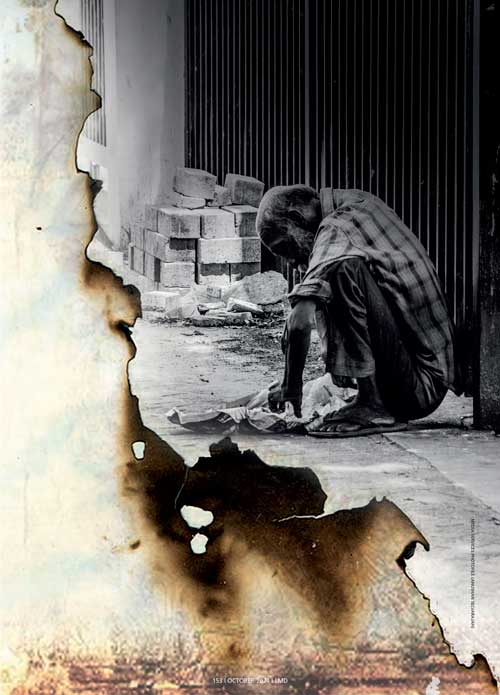
Before the Aswesuma Welfare Benefit programme was instituted, Sri Lanka had two poverty alleviation programmes – Janasaviya (established in 1989) and Samurdhi, which was launched in 1994.
Both Janasaviya and Samurdhi were dogged by accusations of corruption and politicisation, where beneficiaries had to either be followers of the governing party or favoured by agents dispensing benefits under the programmes.
Due to the political weaponisation of Samurdhi, Sri Lanka replaced it with Aswesuma. This social protection initiative aims to reach the deserving poor by removing political influence and overcoming glitches in the selection process of beneficiaries through a scientific methodology.
However, it’s important to note that Aswesuma too is being criticised by some experts who claim that the selection process is failing many deserving beneficiaries due to a skewed methodology. But since a technical evaluation hasn’t yet been conducted, it’s not possible to determine whether it will be a success or failure.
Meanwhile, a hotline (‘1924’) has been allocated by the state to record and respond to complaints by needy citizens who haven’t qualified under the selection process.
Aswesuma, which is being implemented by the Welfare Benefits Board, is receiving technical assistance and funding from the World Bank.
Speaking at the Sri Lanka Economic Summit 2023 conducted by the Ceylon Chamber of Commerce, former Country Director of the World Bank Faris Hadad-Zervos noted that Aswesuma aims to be a more people oriented process without the political interference that marred previous poverty alleviation programmes.
Sri Lanka’s official poverty line at the national level was Rs. 16,326 in May. Aswesuma aims to reach the poor and vulnerable through a selection process that includes a proxy means test, categorical targeting and self-targeting.
It’s using a scientific method to calculate the levels of poverty across six criteria – education, health, economic status, assets, housing conditions and family demographics. These criteria are measured using 22 indicators to determine if the households are poor and deserving of assistance.
Families that qualify for support through Aswesuma will be categorised under four social groups – v-z. transitional, vulnerable, poor and severely poor.
A national survey conducted by LIRNEasia found that there are currently seven million individuals living in poverty. Aswesuma hopes to assist two million poor and vulnerable families (that’s around seven million individuals) in transitioning out of poverty.
It’s using a grading system to identify families based on their level of poverty and as such, 400,000 ‘severely poor’ families will receive 15,000 rupees a month for three years; 800,000 ‘poor’ families will receive Rs. 8,500 monthly for three years; ‘vulnerable families’ will receive 5,000 rupees for nine months; and ‘transitional families’ will receive Rs. 2,500 for six months.
Meanwhile, monthly welfare benefits will be paid to differently-able persons (Rs. 5,000), patients with kidney disease (Rs. 5,000) and the elderly (Rs. 2,000). To eliminate interference at the payment stage, beneficiaries will receive direct cash transfers to their bank accounts.
For the sustainable transition out of poverty, it’s critically important that youth are empowered to find decent work by skilling them in preparation for demand driven jobs. The state must work closely with the private sector, vocational training institutes and education centres to build a skilled workforce that can find lucrative employment in the country or even overseas.
Sri Lankans who are currently living in poverty should be able to live a life that’s economically stable and fulfilling.
And regardless of the outcome of the presidential election, the process of empowering people to cross from poverty to prosperity must not be derailed… because poverty alleviation is a national need and not a political gimmick.
Sri Lankans who are currently living in poverty should be able to live a life that’s economically stable and fulfilling
PRESIDENTIAL WISH LIST
YOUTH ENGAGEMENT
THE YOUTHFUL PULSE IS AN UNSTOPPABLE PHENOMENON
Fazmina Imamudeen highlights the role of youth in shaping the future of the nation

As Sri Lanka stands on the threshold of a new political chapter, it is crucial to look beyond the immediate outcomes of the presidential election, and focus on the long-term aspirations that could shape a prosperous and inclusive future.
Amid this transition, one question looms large: what role will the youth play in shaping Sri Lankan society through public discourse?
Regardless of who has been elected to lead, the aspirations of Sri Lanka’s young people remain a vital element in the nation’s journey towards progress and stability.
Public discourse in Sri Lanka is at a critical juncture with young people increasingly stepping up as key participants in national conversations. From mobilising protests to driving social media campaigns, the youth have demonstrated their capacity to influence public opinion and advocate for change.
The aragalaya against economic mismanagement and corruption is a case in point where young activists played a pivotal role in galvanising public sentiment and shifting political dynamics.
However, young Sri Lankans find themselves at a crossroads today. They are undoubtedly the torchbearers of new ideas and reform, leveraging digital platforms to raise awareness on issues ranging from climate change to corruption.
But the harsh reality is that activism does not pay the bills. High unemployment rates and economic instability mean that most young people are more concerned with finding a job than finding their voice.
This struggle for economic security often leads to another pressing issue: brain drain. The country’s brightest minds, unable to find suitable opportunities at home, increasingly seek employment abroad. This exodus of talent drains Sri Lanka not only of potential innovators and leaders, but also the very voices that could challenge the status quo and drive national progress.
And this economic reality is a heavy anchor, dragging down any efforts to participate meaningfully in societal conversations.
In this context, it becomes crucial to ask: can a society expect its youth to lead change when they’re preoccupied with basic survival? Or is there a deliberate albeit subtle mechanism at play that keeps them disengaged from political processes to maintain the status quo?
The reality is that meaningful engagement in public discourse requires more than simply enthusiasm; it requires an environment where young people feel empowered to speak and act.
While social media provides a platform for young voices, there is a noticeable gap between digital activism and tangible influence in policy making. Bridging this gap is essential if the youth are to play a constructive role in shaping Sri Lanka’s future.
Looking ahead, it is vital that the newly elected leaders – regardless of their political affiliations – recognise and prioritise youth engagement in public discourse. The challenge is not merely one of participation but also of impact, ensuring that young voices are not only heard but also lead to actionable outcomes in governance and policy.
Economic empowerment is critical; creating an environment where young people can find jobs, build careers and pursue entrepreneurial ventures within Sri Lanka could help counter the brain drain.
There is also an urgent need for educational reforms that go beyond technical training to foster critical thinking and civic responsibility, preparing the youth to participate more thoughtfully in democratic processes.
For meaningful progress, young voices must not only be heard but also reflected in policy discussions and governance strategies. This requires fostering a culture of transparency and accountability that rebuilds trust and motivates young people to engage more fully with political processes.
This is not merely a wish list; it is a call to action for all stakeholders to work towards a more inclusive, vibrant and forward-looking Sri Lanka where the voices of young people are integral to national progress.
For meaningful progress, young voices must not only be heard but also reflected in policy discussions and governance strategies
PRESIDENTIAL WISH LIST
VIEWPOINTS
A CITIZENS’ CONSTITUTION
BY Priyan Rajapaksa
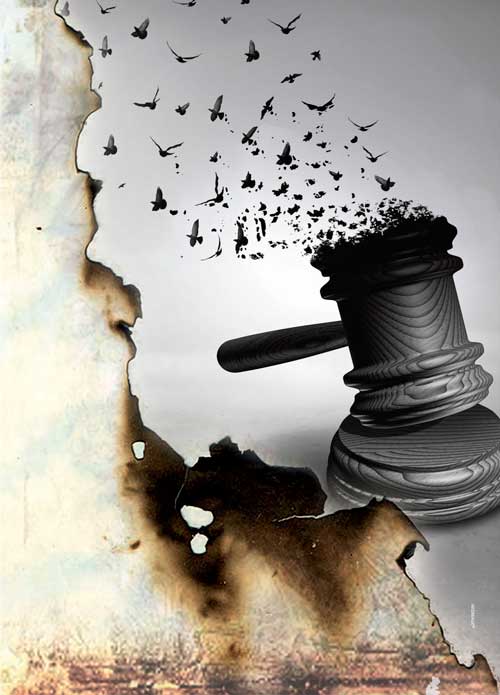
An election in Sri Lanka is generally followed by a new constitution. So the people of Sri Lanka propose a new constitution that addresses issues facing them and the legislature as follows…
We – the common people of Sri Lanka (janaya) – have been misled and deceived by those to whom we delegated the task of governing our country for the past 76 years. Therefore, we recall those powers and hereby submit a new draft constitution for the people, by the people, in the hope the tail won’t wag the dog.
We do ordain and establish this constitution to form a more equitable society, establish justice, ensure domestic tranquillity, provide for the common defence, promote general welfare, and secure the blessings of liberty for ourselves and our posterity.
Previous constitutions attempted to control people. However, history shows that while the general population is law-abiding, those in parliament have seized every opportunity to take undue advantage of the authority we granted them.
Therefore, this document concentrates on governing the behaviour of parliamentarians, their families and hangers-on.
To prevent wasteful and divisive time spent on circular clauses, this draft constitution is published on the internet. We invite all citizens to make comments and suggestions so the most sensible proposals can be included in the final document.
The country will simply be called ‘Sri Lanka.’ Let’s drop the words ‘socialist’ and ‘democratic,’ which it never has been.
All legislative powers herein granted shall be vested in parliament. Parliament will choose a prime minister – and the prime minister, in consultation with parliament, will select a president.
The president will be a figurehead and not play an active role in government.
Clergy will not be allowed to run for political office and demean the robes they wear.
Each Sri Lankan citizen will have one vote. Those with dual citizenship shall not have a vote or any right to participate in the affairs of Sri Lanka at the local, national or governmental levels, nor hold office in political parties. Any transgression shall be grounds for immediate deportation.
All religions will be equal – with none taking precedence over any other. Religions will run their own affairs. No state involvement, promotion or support will be given. Each organisation shall rise or fall on its own merits.
The freedom to practise one’s religion is guaranteed in places of worship. No loudspeakers or external noise exceeding 80 dB will be permitted. Supernatural beings should have sufficient hearing to hear prayers without amplification.
All sports will be free of political interference – especially the honeypot that’s cricket.
There can be no mention of caste, religion or colour of skin in any public document or the media.
Skin whitening creams can’t be offered for sale. Wadakaha, being a Sri Lankan product, may be consumed in its natural state.
The honorifics ‘excellency,’ ‘honourable,’ ‘sir,’ ‘lady’ and ‘madam’ shall not be said in parliament (and hopefully, not in the rest of the country either). People are all honourable and of equal rank.
All national and regional legislators must submit their personal annual audited accounts to parliament.
Entry to parliament or local government is prohibited until every aspirant submits an audited statement of personal assets and liabilities to the legislature. These documents will be open to public scrutiny, similar to the financial statements published by listed companies.
The president and prime minister will be provided with accommodation at the President’s House and Temple Trees only. They are free to choose to stay elsewhere (even in a hotel) if they’re willing to pay with their own resources.
Presidents, prime ministers and parliamentarians must move out of their official residences within 30 days of leaving office.
Parliamentarians will pay the required contributions to the national provident fund and be entitled to withdraw their funds when they retire.
If parliamentarians desire a pension, they can choose to contribute to a national pension or superannuation scheme, which will be set up shortly. This will ensure that pension funds are monitored closely by all parliamentarians and interested parties do not embezzle these monies.
In the case of restructuring national finances, each citizen will lose the same percentage value.
Sunday will be free from political or religious compulsion, and designated a day of rest and recreation.
Women will be equal in status to men and have all their rights including the right to dress as they chose. No person or official will dictate to women how they must dress.
There will be no tuition classes on Sunday and children will be free from parental compulsion to attend religious instructions or mindful activities, and can play from sunup to sundown.
Child marriage – that is, for those under 18 – isn’t permitted.
The honorifics ‘excellency,’ ‘honourable,’ ‘sir,’ ‘lady’ and ‘madam’ shall not be said in parliament

